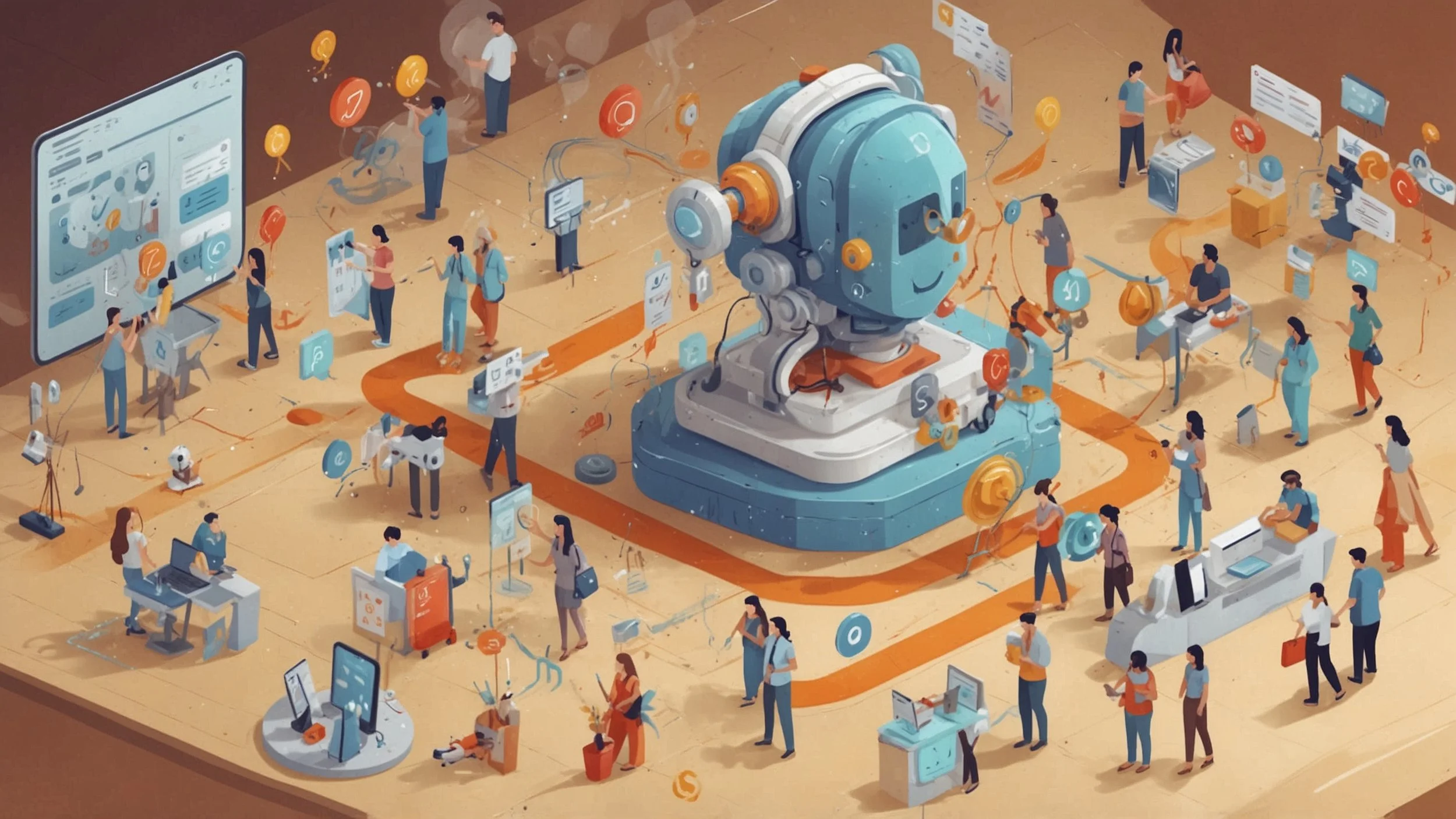The AI Revolution in the Marketing World: A Paradigm Shift
Artificial intelligence has emerged with the goal of revolutionizing every sector of the marketing industry. In the contemporary era, traditional methods are being challenged by rising technologies such as robotic process automation (RPA) and generative artificial intelligence. As these intelligent tools take over, marketing is moving towards a new model where efficiency and personalization are predominant.
The Fall of Traditional SEO
For years, search engine optimization (SEO) has been a mainstay of online marketing. However, the growth of chatbots and AI-driven search options is rendering these conventional tactics obsolete. Instead, generative engine optimization (GEO) is emerging as the new priority, focusing initiatives on incorporating AI-produced responses rather than appearing in search results.
Automation and Operational Efficiency
Automation is profoundly transforming marketing tasks, enabling more efficient and scalable processes. This transformation is being driven by ongoing advances in Artificial Intelligence (AI) technology.
Prediction of the Future of Marketing: According to the consulting firm IDC, it is predicted that by 2028, around 60% of marketing actions will be managed by AI agents.
Content Generation: Advances in automation are making it easier to create content, allowing companies to stay relevant in real time.
Advanced Personalization: AI technology allows you to tailor experiences in a personalized way, which is essential to better engage audiences of interest.
Increased Effectiveness: Through automation, a significant increase in the effectiveness and scalability of marketing campaigns is achieved.
Personnel Reduction: With automation, the need for a large human team is reduced, which optimizes resources and reduces costs.
In short, automation and artificial intelligence are reshaping the marketing landscape, making processes more effective and less dependent on direct human intervention.
The Rise of AI-to-AI Trade
In the emerging model of AI to AI, automated agents are beginning to make purchases on behalf of human consumers, which is shaping an entirely new form of commerce transactions:
Automation of the consumer journey: This new transformative model makes the buying process more automated, significantly reducing the need for direct human intervention.
Change in procurement decisions: Artificial intelligence agents have the ability to evaluate multiple options and make data-driven decisions in real time to optimize purchases.
Impact on marketing: Marketing strategies must now be designed not only to appeal to human consumers, but also to influence algorithms and AI systems that make purchases.
Challenges for businesses: Companies must adapt quickly to this change, developing tactics to understand how these AI agents work and how their attention can be captured.
New opportunities and risks: While providing new opportunities for marketing innovation, AI-to-AI commerce also poses risks related to transparency, ethics and market competition.
Continuous adaptation will be key for organizations seeking to thrive in an environment where business decisions are increasingly less human.
The shift in marketing brought about by artificial intelligence represents both an opportunity and a challenge. Companies that implement AI and reevaluate their strategies will gain a notable competitive advantage. As traditional norms fade, companies that adjust and understand how to incorporate and position themselves in AI systems will be the ones leading the next stage of customer interaction.






